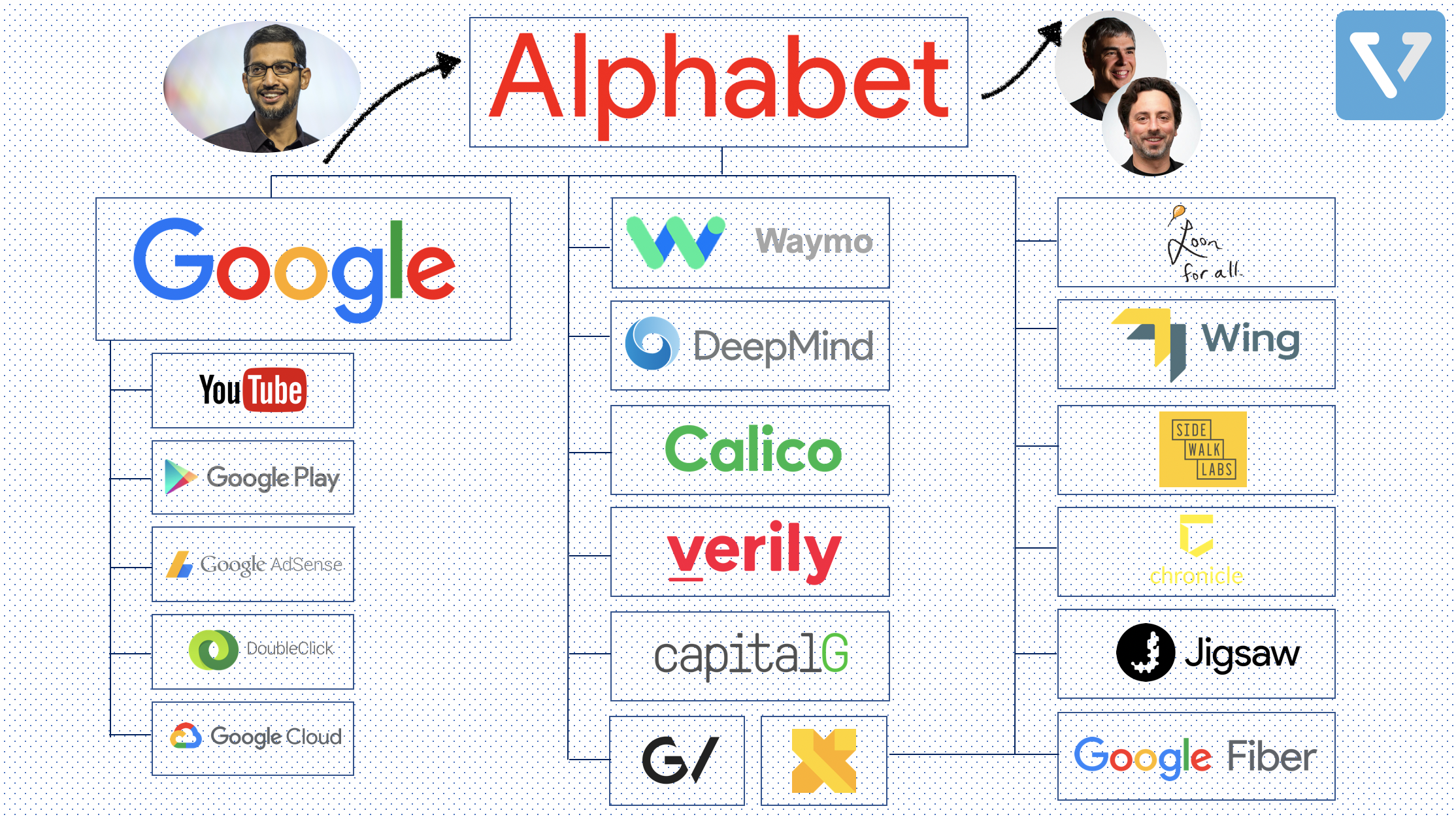Sundar Pichai left his position at Google and is the new CEO of Alphabet
Who is the CEO of Google? It is Sundar Pichai. In 2015, Sundar Pichai was promoted as the CEO of Google. And in 2019, as Larry Page and Sergey Brin stepped down as CEO and President of Alphabet (ticker: GOOG), respectively, Mr. Pichai was promoted to the the CEO of Alphabet, the holding company.
For those who do not know, Alphabet is the parent holding company of Google and its many Other Bets. These Other Bets comprise of companies that are developing frontier technologies, ranging from self driving cars (Waymo), high-altitude balloons for internet connectivity (Loon) and smart contact lenses (Verily). See Figure 1 for the structure of Alphabet.
Alphabet was first structured in 2015 to distance Google (the profitable part of the business) from its other experimental (money-losing) businesses. In Q3 2019, Google generated US $10.8 billion, while Other Bets lost US $941 million.
Larry and Sergei are not going away, however. Both founders will still be involved at the board of directors level, and both still have supermajority voting power.
This shift means Sundar Pichai will not only be responsible for Google’s business, but also managing the company’s other bets. This also means Sundar will be the public face of the company, where he will ultimately have to deal with the impending US government investigation over potential antitrust behavior of the company.
How did the market react? Well the share price has gone up ~2.5% since the news broke. Perhaps investors are confident in Sundar’s ability to reduce losses in Other Bets and provide a better direction for the company. Sundar was, after all, the man who led the Chrome browser project to be the number one browser in the world, and the man who became CEO of Google within 11 years of joining the company.

Figure 1: Leadership change in Alphabet. The cornucopia of companies outside Google is often called Other Bets.
Thanks for reading! If you are an investor from India and are interested in learning more about how you can buy US stocks, read more here.

